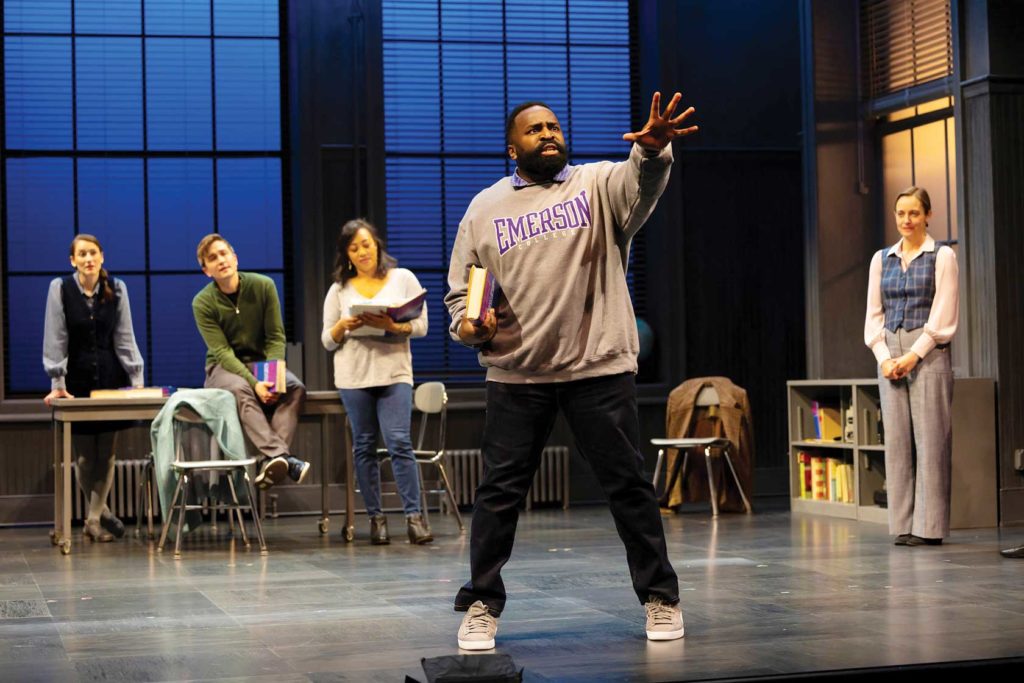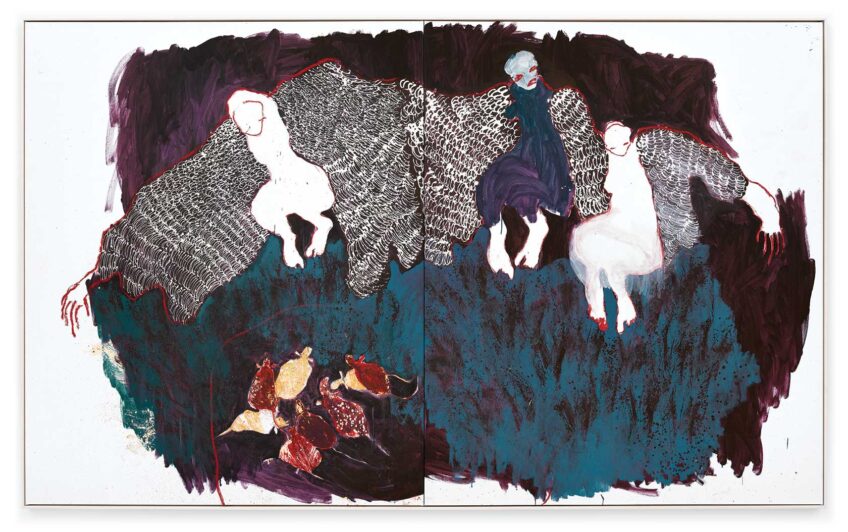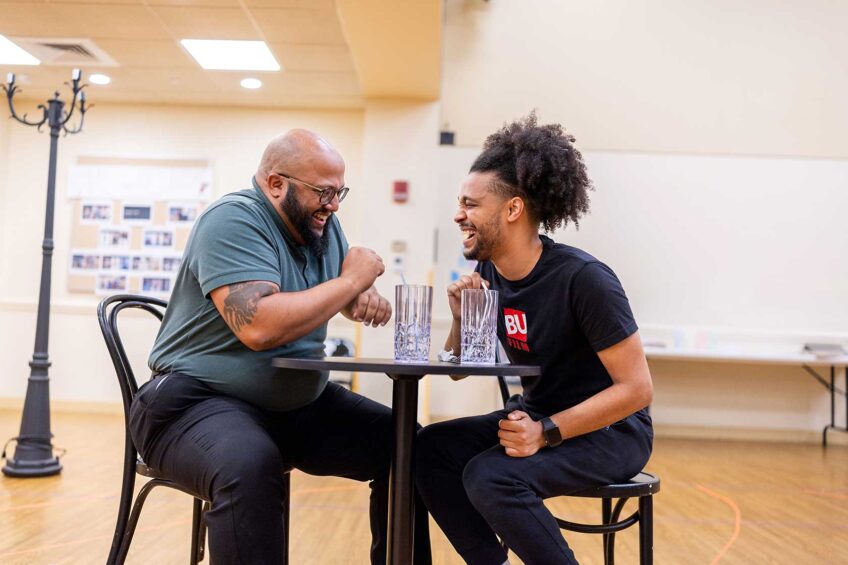
In 1985, journalist J. Anthony Lukas published “Common Ground: A Turbulent Decade in the Lives of Three American Families,” a nonfiction book exploring the busing crisis in Boston. Decades later, the text has been adapted for the stage in “Common Ground Revisited” playing at The Huntington through June 26.
Co-conceived by Obie Award-winning director Melia Bensussen and Obie Award-winning playwright and Huntington Playwriting Fellow Kirsten Greenidge, “Common Ground Revisited” takes the baseline text of Lukas’s exploration and adapts it for the stage and for a 2022 audience.

Scene from The Huntington Theatre’s “Common Ground Revisited” PHOTOS: T CHARLES ERICKSON
“I got very excited about creating this theater piece that didn’t simply portray the book but kind of reframed what it meant for a work to be iconic, for a nonfiction work to be considered definitive,” says Bensussen. “We have worked over the years to get the contemporary temperature of race and history in Boston reflected in this examination of the book.”
Lukas’ book follows three families, the Divers in the South End, the Twymons in Roxbury and the McGoffs in Charlestown, as they navigate the court-ordered school busing system sending their children to new areas of the city. The stage adaptation uses this framework to discuss contemporary issues of race and education in Boston, where too little has changed since this book was written.
According to Bensussen, Boston Public Schools are more segregated now than they were when the busing initiative began. Boston neighborhoods are infamously segregated, and one of the questions the play poses is, what does it mean to be from Boston? Are you ever from Boston, or are you from a specific neighborhood? With such vast differences between neighborhoods, how can there be a singular Boston experience? The cast includes 12 actors who are all from Greater Boston or have strong ties to the city. The actors’ input and experiences were included in the development of the piece through workshops and readings, and several of their personal stories are included in the script.

Scene from The Huntington Theatre’s “Common Ground Revisited” PHOTOS: T CHARLES ERICKSON
In some ways, it can feel discouraging to be having the same conversations about segregation and education 40 years later, but Bensussen hopes the play will provide a productive space for the dialogues to move forward, toward solutions.
“What we have done, in a sense, is on stage create the context that we hope will exist in the lobby of the theater after the show and beyond,” says Bensussen. “To have characters examining and questioning this work and each other, questioning assumptions about what is segregation, what is education … we hope will encourage audiences to look more intrepidly and more quizzically at the circumstances of this city.”







